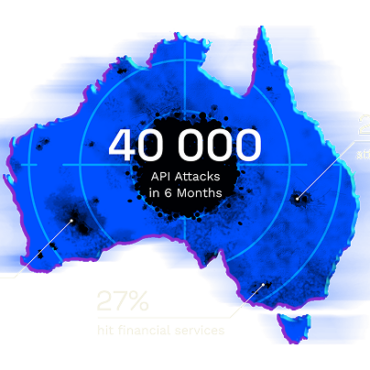How to build a great FinTech product
Updated 6 Nov 2024
In the rapidly evolving financial technology (fintech) landscape, building a successful product requires a strategic approach that integrates innovation, user-centric design, and compliance with regulatory standards. This comprehensive guide outlines the essential steps to develop a fintech product that not only meets market demands but also stands out in a competitive industry.
Understanding the Fintech Landscape
The fintech industry encompasses a wide range of services, including digital banking, payment processing, investment platforms, and personal finance management tools. Companies in this sector leverage technology to enhance financial services, offering customers more efficient and accessible solutions. To build a great fintech product, it’s crucial to understand the current market trends, customer expectations, and the competitive landscape.
The Role of Data in Fintech Development
Data is the backbone of any successful fintech product. From analyzing customer behavior to forecasting market trends, data-driven decision-making empowers companies to build more effective and innovative solutions. Here’s how you can harness data effectively:
Collect Quality Data: Focus on gathering accurate and relevant data from trusted sources. This can include user interactions, financial transactions, and external market insights.
Data Privacy and Security: With financial data being highly sensitive, safeguarding it is critical. Implement encryption, anonymization, and strict access controls to ensure data integrity.
Leverage Analytics Tools: Advanced analytics can help identify patterns and trends, enabling businesses to make informed decisions. Machine learning algorithms, for example, can predict customer preferences and tailor personalized services.
Real-Time Processing: Real-time data processing allows companies to respond to customer needs instantly. This is particularly important for payment processing and fraud detection systems.
Key Steps to Building a Great Fintech Product
- Identify Market Needs and Define Your Value Proposition
Begin by conducting thorough market research to identify gaps in existing financial services. Understanding customer pain points allows you to develop a product that offers unique value. Define your value proposition clearly—what problem does your product solve, and how does it benefit the customer?
- Ensure Compliance with Regulatory Requirements
Navigating the complex regulatory environment is a significant challenge in fintech development. Compliance with financial regulations is non-negotiable. Engage legal experts to ensure your product adheres to all necessary standards, including data protection laws and financial conduct regulations.
- Design a User-Centric Experience
User experience (UX) is paramount in fintech products. A seamless, intuitive interface enhances customer satisfaction and fosters trust. Incorporate user feedback during the design process to create a product that meets user needs and expectations.
- Implement Robust Security Measures
Security is a cornerstone of any financial product. Implement advanced security protocols to protect customer data and prevent fraud. Regular security audits and compliance with industry standards are essential to maintain trust and integrity.
- Leverage Advanced Technologies
Utilize cutting-edge technologies such as artificial intelligence, machine learning, and blockchain to enhance your product’s capabilities. These technologies can improve efficiency, provide personalized services, and offer innovative solutions to complex financial challenges.
- Develop a Scalable Architecture
Design your product with scalability in mind to accommodate growth and evolving customer needs. A flexible architecture allows for the integration of new features and services, ensuring long-term viability.
- Conduct Rigorous Testing
Before launching, perform comprehensive testing to identify and resolve any issues. This includes functional testing, security assessments, and user acceptance testing to ensure the product performs reliably under various conditions.
- Plan for Continuous Improvement
Post-launch, gather user feedback and monitor performance metrics to identify areas for improvement. Adopt an agile development approach to implement updates and new features, keeping your product competitive and aligned with customer expectations.
Personalized Services: The Game Changer in Fintech
In today’s customer-centric market, personalization is no longer optional—it’s expected. Fintech companies that offer tailored experiences are more likely to build lasting customer relationships. Here’s how to achieve it:
Understanding Customer Behavior: Use data analytics to understand how customers interact with your product. This can inform decisions on design, features, and overall user experience.
Dynamic Content: Personalize dashboards, recommendations, and notifications based on user profiles and preferences.
AI-Powered Insights: Artificial intelligence can help predict what customers need.
Integrating Emerging Technologies
The fintech industry thrives on innovation, and staying ahead means embracing emerging technologies. Consider these transformative technologies for your product:
Blockchain: This technology ensures secure and transparent transactions, making it ideal for applications like cross-border payments and smart contracts.
Artificial Intelligence (AI): AI can automate processes, enhance customer support through chatbots, and provide deep insights into financial patterns.
Open Banking APIs: Enable third-party developers to build services around your product, creating a broader fintech ecosystem.
Internet of Things (IoT): IoT devices can connect financial services with the physical world, such as enabling contactless payments through wearables.
Scaling Your Fintech Product for Long-Term Success
As your fintech product gains traction, scalability becomes a critical consideration. Here are strategies to ensure your product evolves with your business:
Cloud-Based Infrastructure: Cloud platforms provide flexibility and cost efficiency, allowing you to scale up or down based on demand.
Microservices Architecture: Building your product using microservices ensures that individual components can be updated or expanded without affecting the entire system.
Global Market Expansion: If you plan to enter international markets, ensure your product is adaptable to different regulatory environments and cultural nuances.
Crafting a Robust Go-to-Market Strategy
A well-planned go-to-market strategy can determine your fintech product’s initial success. Focus on:
Identifying Your Target Audience: Narrow down your audience segments to tailor your marketing and communication efforts.
Building Strategic Partnerships: Collaborate with established financial institutions or tech companies to gain credibility and reach.
Leveraging Digital Marketing: Use social media, content marketing, and SEO to build awareness and attract early adopters.
Offering Freemium Models: Encourage adoption by providing a free tier of your product, then converting users to paid plans with added value.
Overcoming Common Challenges
Building a fintech product comes with its set of challenges:
Regulatory Compliance: Staying abreast of changing regulations requires ongoing vigilance and adaptability.
Security Concerns: Protecting sensitive financial data is critical; investing in robust security measures is essential.
Market Competition: Differentiating your product in a crowded market necessitates a clear value proposition and continuous innovation.
Customer Trust: Establishing and maintaining trust is vital; transparency and reliability are key components.
Conclusion
Developing a successful fintech product involves a strategic blend of understanding market needs, ensuring regulatory compliance, focusing on user-centric design, leveraging advanced technologies, and maintaining robust security measures. By addressing these areas thoughtfully, companies can create financial products that not only meet customer expectations but also drive innovation in the financial industry.
At Ostride Labs, we specialize in guiding businesses through the complexities of fintech product development, offering expertise in technology integration, compliance, and user experience design to help you achieve success.



